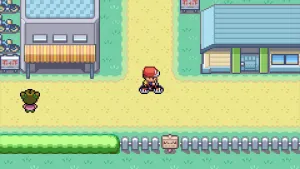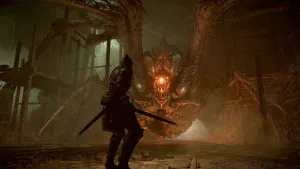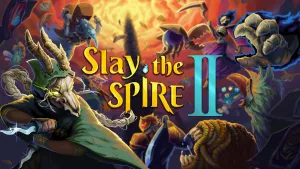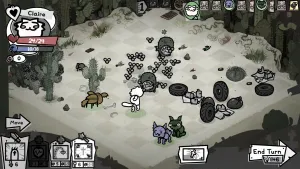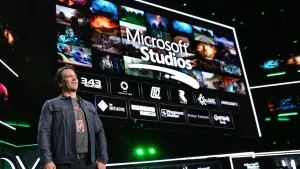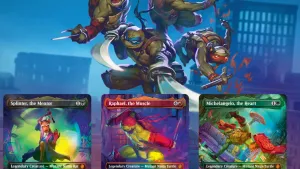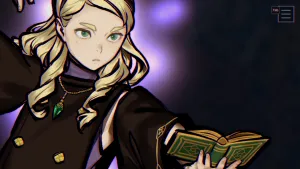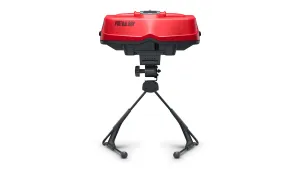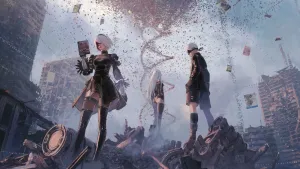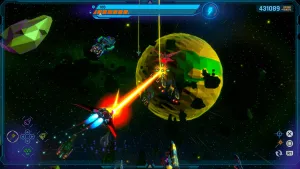Indie Week: Talking To The Top Contenders

[Welcome to Indie Week at gameinformer.com. We’ve got a full seven days of indie game coverage leading up to the 2010 Independent Games Festival Awards. Check the hub daily for new previews, interviews and other coverage of the top independent games of the year.]
We've said it before and we'll say it again. The Independent Games Festival is a big deal for autonomous game developers. The ceremony recognizes 20 finalists in six unique categories; accolades are given for excellence in visual art, audio, technical execution, innovation and overall design. Additionally, one lucky developer leaves the Bay Area with the Seumas McNally Grand Prize – securing the ceremony’s top honor and a lofty $20,000 prize.
More important than any monetary reward, however, is the platform that IGF provides. Contestants garner the attention of consumers, critics and potential publishers, all interested in the fruits of their long and sometimes ill-publicized labor. Indie darlings such as Braid, Castle Crashers and World of Goo owe a great deal to the IGF for this exact reason, and pay it forward each year by educating and inspiring future leaders in the indie sphere.
Scoring a nomination for the Seumas McNally Grand Prize is no small feat, and the five 2010 contestants are all deserving of their nods. We had a chance to play all five titles and shared our impressions throughout the week. Now we take some time to chat with the minds behind the madness, discussing the pros and cons of being an indie developer and touching on their opinion of "mainstream" games.
The Recap
It’s one thing to read a preview penned by someone far removed from a game, and another thing entirely to hear direct from a developer their goals and aspirations for a pet project.
[Joe Danger]
“In our game you play as Joe Danger. He was once the World's greatest Stuntman, but since then he's had some nasty crashes and eaten a few too many hamburgers. It’s the player's job to take him back to the top of his game. Cue Montage! He needs to thrill the crowd by pulling death-defying stunts to reclaim his title of Master of Disaster and teach his rivals a lesson, the reckless ‘Team Nasty.’ He's basically a cute, hapless little dude who's never walked away from a stunt, literally.
“I guess it’s a racing game, but it’s secretly a platformer, and also one where you are holding a combo and constantly thinking about your score as well as exploring. We want to recreate that childish joy of the first time you took a toy motorbike, doused it in lighter fluid, lit it, and launched it at high speed over your carefully constructed ramp out a second story window. You can take on your friends too and build your own levels to share with them.”
Sean Murray, Managing Director, Hello Games
[Monaco]
“Monaco is a co-op stealth game in which a team of outlaws pull off impossible-seeming heists by using each thief's unique abilities. You can play with up to four players on one screen or over the internet, and you can make your own levels and share them with your friends.”
Andy Schatz, Pocketwatch Games
[Trauma]
“At first sight Trauma is somewhat similar to a first-person point-and-click adventure. You navigate through a series of photographic still-images and solve puzzles. However there are a lot of unique things about Trauma such as real-time 3D transitions and a gesture-based input system. But apart from technological details, the thing that I think will surprise most people is its mature story and a focus on mood and visuals rather than actual puzzle solving."
Krystian Majewski
[Super Meat Boy!]
“You're a boy made of meat, a fetus in a jar stole your girlfriend who's made of bandages, you save said girl using your little stubby legs.”
Edmund McMillen, Team Meat
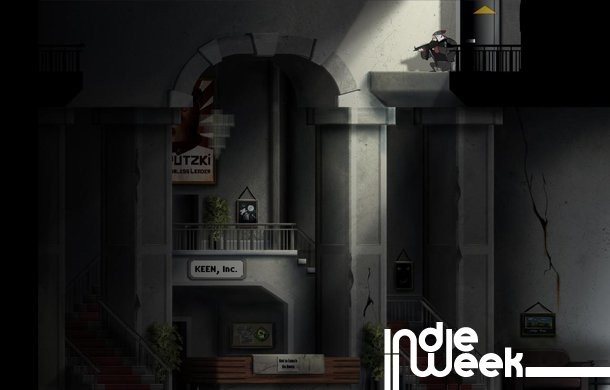
The Worst of Times...
Even with the inherent freedom of being indie, independent development is a constant challenge. The developers share the hardest aspects of controlling their own destiny below.
[Joe Danger]
“We’ve actually all come from much larger game developers and worked on games like Burnout, Geometry Wars Galaxies, Sega Superstars Tennis and Black. We started-up around the middle of last year, working on my dining room table to begin with, and then cramming ourselves into a tiny office.
“Some things can be a real struggle in that situation. We risk a lot spending a couple of years making a game, then cross our fingers and hope that people like it. There’s a lot less security and a lot more demands, because we have to do everything for ourselves too. We definitely have to wear lots of hats; there are more roles for us to fill than there are people. We don’t have a designer, we don’t have PR, or a business manager. There’s just the four of us, and we do all that.”
Sean Murray, Managing Director, Hello Games
[Monaco]
“The toughest part? Working alone! For the better part of the last five years I've been working at home on my own. I hire some work out to contractors around the world, but in the end, it's still just me sitting in my home office. That can get pretty lonely sometimes.”
Andy Schatz, Pocketwatch Games
[Rocketbirds: Revolution!]
“Starting a project is always the easy part; everyone is excited and eager to make something fantastic. However, taking something from a playable demo through to a completed game is a huge amount of work. It’s easy to focus on the fun stuff and keep adding and adding. Knowing when enough is enough and getting the project to a shippable state can be tough. Testing and debugging your game will still take a lot of time, dedication and patience. The most common failing of a game is over-ambition.”
James Anderson, Ratloop Asia
“Yeah, I found the toughest thing to do to be designing for and working within your constraints. An indie can make any game he wants, but unless he never plans to finish it, he has to factor in his 'indie' resources. You want to make a big game with a small team; you're going to have to figure out how to get all your assets in place within a certain amount of time and within your budget and capabilities. It means cutting corners, dropping things and trying to re-use things wherever possible, without it becoming too obvious or annoying. You'll spend the first 30% of your time making the game and the rest of the time testing and completing it. The first 30% is fun; the other 70% takes discipline, restraint and hard work.
“And then, as an indie, you shouldn’t just plan to pass the package to your publisher, you’ve also got to take care of the stuff that enables the actual sale of your game, the paypal/onebip stuff, the demo system, the website, the forum, the user authentication, the databases, the cloud server stuff, the shameless ‘buy now button’, the mechanism to seamlessly update your game for end users. It all needs attention, it all needs to form part of your testing procedure and it all needs to be integrated within your game.”
Sian Yue Tan, Ratloop Asia
[Trauma]
“The toughest aspect of being Indie is simply getting the money to get started. Experimental projects take time and have an uncertain outcome so they are not interesting for business investors. Games also aren't recognized as culturally valuable so there aren't many government funds you can take advantage of, especially in Germany.”
Krystian Majewski, Trauma
[Super Meat Boy!]
“Inflamed Gallbladders and Diabetes, so far that is. Honestly though being indie isn’t hard at all if you're ok with being poor.”
Edmund McMillen, Team Meat
“For me the toughest part is counting the money I make. I don't like to brag, but I do like to. I made almost $1000 last year.”
Tommy Refenes, Team Meat 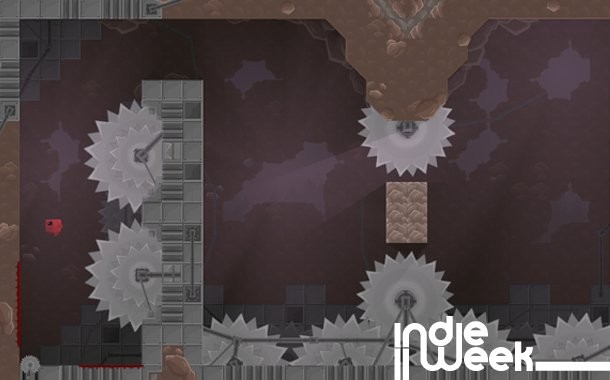
The Best of Times...
Obviously the peaks outweigh the valleys, or we wouldn't have a thriving indie community helping to innovate the industry. After months (or years) of labor and
love, eventually the development cycle draws to a close. And that’s
when the indie developer can step back and look at what their freedom
afforded them.
[Joe Danger]
“We love it all really. I’ve been making games since I was a kid and I’ve never thought of doing anything except starting up on my own. I think that’s the same for all of us. Dave and Grant used to make Doom levels together as kids, I was always tinkering with some game or other, Ryan is the same. I think that’s why we had an instant connection when we met, that is so rare.
“The best part though is watching people play your game. Recently Eurogamer gave us a free stand at the Expo, and it was the first time we've shown the game to the public. We had a little booth sandwiched in between God of War and Bayonetta, so I think it’s fair to say we were nervous when the doors opened. Actually though, the reception was awesome. We've had so many people saying it was their Game of the Show, it’s just crazy. We had some people just get totally hooked and spend like 3 hours straight playing the game. We had to force people off to let someone else play. It couldn’t have been better.”
Sean Murray, Managing Director, Hello Games
[Monaco]
“Working alone! I don't have to manage anyone, I don't have to be managed. There's no one to blame for my failures and no one to take credit for my successes but myself. It's incredibly satisfying and freeing to wake up each day and decide what it is I want to work on that day.
“When you work by yourself your product is necessarily very personal. And because of the personal nature of our work, the indie scene has grown into a vibrant community of developers that supports and promotes itself. I've been very lucky to meet some of the bravest, most interesting, most intelligent people I've ever known over the past five years.”
Andy Schatz, PocketWatch Games
[Rocketbirds: Revolution!]
“I'd probably say it's the community. The relative openness and generosity on the part of other developers is pretty amazing, and also humbling. Whether it's free engines or frameworks, learning resources, or solid feedback, there's a solid community devoted to both developing and appreciating indie games.”
Teck Lee Tan, Artist, Ratloop Asia
“What makes indie games development possible now is the ability for people to publish and distribute content on their own. More and more people are starting to appreciate independently made titles and support them, not because they feel charitable, but because independent games can offer something novel and different than mainstream could. As mainstream games get larger and more expensive to make, publishers need to find ways to reduce the risks involved in producing them – a new title would require some kind of license, or instant hook/pitch, or play like other successful games (but look better, have more assets, be longer, have more guns, yadda yadda). Indie games, instead, deal with risk by lowering the cost of production and distribution and can therefore focus on innovation and originality. I guess it is the way we deal with risk and our change in focus that I enjoy most about being indie.”
Sian Yue Tan, Designer, Ratloop Asia
“ When working in a smaller team, on an indie project, you generally have control across multiple disciplines. Often some of the coolest mechanics or features in a game require art, sound, code and design to work together seamlessly for a great result. Having the power to rapidly iterate and test those kinds of ideas in the game is key to finding what works well in the context of your game – and not to mention; loads of fun!
“In a small team environment, communication is direct and effective. Each member of the team understands the concept thoroughly and can work together towards the common goal. A close knit team with a sense of ownership can 'feed' off each others’ passion and make something which exceeds the initial expectations. This is a great feeling, and I think one of the more satisfying parts of indie development.”
James Anderson, Designer, Ratloop Asia
[Trauma]
“I don't waste my life doing mind-numbing shovelware.”
Krystian Majewski
[Super Meat Boy!]
“Creative freedom”
Edmund McMillen, Team Meat
“No bosses saying that I made them feel bad for not ‘Thanking them for the mattresses they put in the office’ for working a five day straight crunch.”
Tommy Refenes, Team Meat
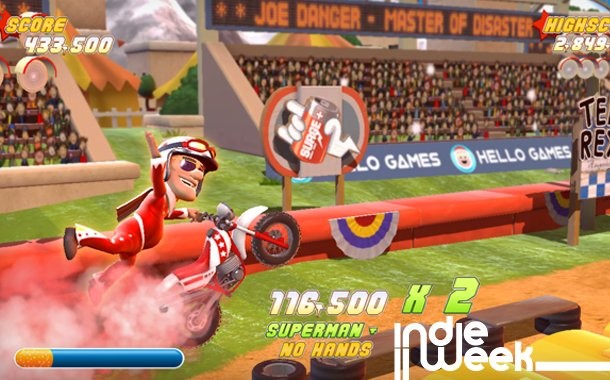
The Future
What does the future hold for our developers? We end our interview by asking if indie is where it's at, or if they have plans to move "mainstream."
[Joe Danger]
“ ‘Mainstream’ isn’t a bad thing to us, I love playing games and they are a big part of my life. We want to make games that people want to play, and we hope Joe Danger is a game that has that appeal. We come from that generation, where we grew up with the SNES and Sega Genesis, so for us bright and vibrant means fun, and you know, not necessarily casual. So we want Joe Danger to be welcoming, accessible and really simple but also really deep and pretty hardcore. Like a lot of old school Sega games were, games like Crazy Taxi, or Super Monkey Ball, or Sonic back when it was awesome.”
Sean Murray, Managing Director, Hello Games
[Monaco]
“Ha! Hell no! I worked like a slave for five years on games published by EA, Microsoft, and Activision. Even when I was in leadership roles on those teams, my contribution was still tiny. I just didn't enjoy being a cog in a much bigger machine. So about five years ago I went indie, and I haven't looked back!”
Andy Schatz, Pocketwatch Games
[Rocketbirds: Revolution!]
“I think the characters and universe have mainstream potential and people's reaction to them so far has been phenomenal. I, personally, would love to see this type of game enter back into the mainstream, or work on a more mainstream game based on the Rocketbirds universe.”
Sian Yue Tan, Designer, Ratloop Asia
[Trauma]
“I think games are not mainstream at all. They are violent, complicated and irrelevant to the real world. You need to be a pretty niche type to enjoy them. I love traditional games but I'd like to focus on expanding our audience by doing different games. That's not possible in traditional development structures right now.”
Krystian Majewski, Trauma
[Super Meat Boy!]
“F**k no”
Edmund McMillen, Team Meat
“I dunno Ed, I think after SMB, we should maybe work on a Sponge Bob game, or we could put shotguns in each others mouths....they both sound about the same.”
Tommy Refenes, Team Meat

Get the Game Informer Print Edition!
Explore your favorite games in premium print format, delivered to your door.
- 10 issues per year
- Only $4.80 per issue
- Full digital magazine archive access
- Since 1991
